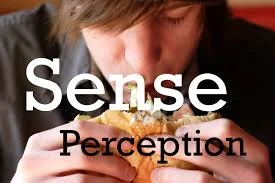“It’s not what you look at that matters, it’s what you see” – Henry David Thoreau
“Two-thirds of what we see is behind our eyes” – Chinese proverb
“Things do not seem the same to those who love and those who hate, nor to those who are angry and those who are calm” – Aristotle
“You can’t depend on eyes when your imagination is out of focus” – Mark Twain
“If the doors of perception were cleansed, everything would appear to man as it is – infinite” – William Blake
LINKING QUESTIONS:
THE ARTS– To what extent do the arts help us to see the world with new eyes?
ETHICS – Do “good” people see the world differently from “bad” people?
HISTORY – Should we trust eye-witness accounts?
HUMAN SCIENCES– How does the act of observation influence what is observed?
EMOTION – How does your mood affect your perception of things?
NATURAL SCIENCES– How far do expectations influence observations?
LANGUAGE– How does the way we describe something affect the way we see it?
REASON – Which is a more reliable source of knowledge – perception or reason?
Optical Illusions
Perception = the awareness of things through our 5 senses, or the “gates and windows” of the mind, the channels of communication between ourselves and the outside world.
Helen Keller (see picture) was born deaf and blind and lived in complete isolation until her teacher, Anne Sullivan, introduced a 'new language' and a 'new way of knowing' to her. Keller was the first deaf blind woman to earn a Bachelor's degree and she became and author, political activist and lecturer. She claimed that ‘The greatest calamity that can befall people is not that they should be born blind, but rather that they should have eyes and yet fail to see.’ What do you think she meant with these words? Do you agree? According to you, what are the limitations of sense perception as a source of knowledge? Which other ways of knowing should we use in combination with sense perception when acquiring knowledge? This section of the website will explore how people with limited access to the senses 'know'. We will also look at the limitations of sense perception as a source of knowledge, with particular emphasis on sight. Optical illusions and articles on how memory and language influence and alter sense perception highlight the limitations of sense perception as a source of knowledge when it is used in isolation. Philosophers and critical thinkers have been puzzled by the human limitations of gathering knowledge through sense perception for centuries and Plato's cave allegory is perhaps the most well-known example in this field. However, few know about the priesthood training of the Kogu people of the Sierra Nevada. Wade Davis explains in his TED talk on endangered cultures how 'young acolytes are taken away from their families at the age of three and four, sequestered in a shadowy world of darkness in stone huts at the base of glaciers for 18 years.' These acolytes live away from society, with limited access to sense perception as a way of knowing. For this entire time, they are inculturated into the values of their society, values that maintain the proposition that their prayers and their prayers alone maintain the cosmic-- or we might say the ecological-- balance.' Imagine how the young priests feel at 18, when they are taken out of the huts at the end of the initiation period and witness get direct access to the world around hem through their senses. The sensation must be similarly overwhelming to the story of the Jo Milne, the deaf woman who hears for the first time at the age of 40. To read her story, and understand her perspective, click here.
If you had to sacrifice ONE of your senses, which would you be most willing to lose and which least willing to lose?
MOST people answer that they’d least be willing to lose sight, and most willing to lose smell. Smell is sometimes referred to as the “mute sense”. Think about it – we have thousands of terms for colors but not much other than “smells good/bad”. In reality, we can distinguish more than 10,000 distinct odours. Moreover, smells can trigger powerful emotional responses in the brain, as this sense has a more direct route than then other four.
Possible essay question:
“A map is only useful if it simplifies things.” To what extent does this apply to knowledge? (Specimen 2015)
“All knowledge depends on the recognition of patterns and anomalies.” Consider the extent to which you agree with this claim with reference to two areas of knowledge. (Specimen 2015)
To what extent do ways of knowing prevent us from deluding ourselves? Justify your answer with reference to at least one area of knowledge. (Specimen 2015)
“There are only two ways in which humankind can produce knowledge: through passive observation or through active experiment.” To what extent do you agree with this statement? (May 2015)
“Ways of knowing are a check on our instinctive judgments.” To what extent do you agree with this statement? (May 2015)
“Without the group to verify it, knowledge is not possible.” Discuss. (November 2015)
“No knowledge can be produced by a single way of knowing.” Discuss. (November 2015)
“Ways of knowing operate differently in personal and shared knowledge.” Assess this claim. (November 2016)






